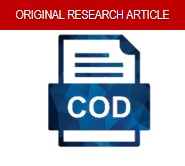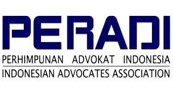Public Trust and the Legal Validity of Electronic Signatures in Indonesia
DOI:
https://doi.org/10.46924/jihk.v7i1.311Keywords:
Civil Law, Contract Validity, Electronic SignaturesAbstract
The advancement of digital technology has accelerated the adoption of electronic signatures (ETS) in a wide range of civil transactions in Indonesia. However, their legal validity and evidentiary strength continue to present significant challenges. This study seeks to examine the legal foundations governing the validity of ETS within the framework of Indonesian civil law, evaluate their recognition as admissible evidence in judicial proceedings, and identify key implementation barriers related to technical infrastructure, procedural limitations, and public trust. Employing a normative legal approach combined with jurisprudential analysis of court decisions from 2018 to 2025, the study finds that while certified ETS are normatively recognized as legally valid, their practical application remains inconsistent—particularly in cases involving uncertified ETS. The primary impediments include limited technical capacity among law enforcement personnel, low levels of digital literacy, and uneven access to certification infrastructure. In conclusion, the effective implementation of ETS in Indonesia requires regulatory harmonization, capacity-building within judicial institutions, and efforts to strengthen public confidence in the legal validity and security of ETS within the national legal system.
Downloads
References
Journals
Cahyadi, Thalis Noor. “Aspek Hukum Pemanfaatan Digital Signature Dalam Meningkatkan Efisiensi, Akses Dan Kualitas Fintech Syariah.” Jurnal Rechts Vinding: Media Pembinaan Hukum Nasional 9, no. 2 (2020): 219–36. http://dx.doi.org/10.33331/rechtsvinding.v9i2.424.
Dewi, Devi Chintya, Dinda Amelia, Faizal Rakha Ratama, Faturachman Shidiq, Firgy Ferdansyah, and Dikha Anugrah. “Tanda Tangan Elektronik Sebagai Solusi Hukum Perikatan Dalam Era Digital Di Indonesia.” Letterlijk: Jurnal Hukum Perdata 1, no. 2 (2024): 217–30. https://doi.org/10.25134/jise.v1i2.xx.
Ilham, A. Dini Hardina, Sufirman Rahman, and Abdul Qahar. “Keabsahan Tanda Tangan Elektronik Pada Perjanjian Jual Beli Barang Dari Perspektif Hukum Perdata.” Journal of Lex Generalis 3, no. 8 (2022): 1269–81. https://pasca-umi.ac.id/index.php/jlg/article/view/1003.
Lazarus, Lazarus. “Pengaruh Teknologi Dan Globalisasi Terhadap Sistem Hukum Dan Identitas Sosial Masyarakat.” Media Hukum Indonesia 2, no. 2 (2024): 398–404. https://ojs.daarulhuda.or.id/index.php/MHI/article/view/490.
Maulidiyah, Nurfauzah, and Yustria Novi Satriana. “Eksistensi Digital Evidence Dalam Hukum Acara Perdata.” Jurnal Cakrawala Hukum 10, no. 1 (2019): 69–76. https://doi.org/10.26905/idjch.v10i1.2616.
Nasrul, Nasrul. “Kajian Yuridis Tanda Tangan Elektronik Sebagai Alat Bukti Yang Sah Dalam Perspektif Hukum Acara Perdata.” Jurnal Litigasi Amsir 10, no. 4 (2023): 386–403. https://journalstih.amsir.ac.id/index.php/julia/article/view/312.
Putri, Ovie Sumita, Lovelly Lovelly, and Irfan Irfan. “Tinjauan Yuridis Keabsahan Dan Kekuatan Pembuktian Tanda Tangan Elektronik (Digital Signature) Dengan Menggunakan Aplikasi Privy Dalam Perjanjian Berdasarkan Kuhperdata.” Journal of Sharia and Law 2, no. 4 (2023): 1157–1182. https://jom.uin-suska.ac.id/index.php/jurnalfsh/article/view/1482.
Risqi, Risqi Kurniawan. “Kekuatan Hukum Tanda Tangan Elektronik Dalam Kontrak Menurut Hukum Positif Indonesia.” Dinamika: Jurnal Ilmiah Hukum 28, no. 2 (2022): 3361–73. https://jim.unisma.ac.id/index.php/jdh/article/view/14534.
Setiawan, Ahmad Budi. “The Ecosystem of Electronic Certificate Implementation in Electronic Commerce System.” Jurnal Penelitian Dan Pengembangan Komunikasi Dan Informatika 6, no. 2 (2025): 15–28. https://jkd.komdigi.go.id/index.php/jppki/article/view/591.
Sukma, Sabrena. “Legalitas Tanda Tangan Digital Dalam Konteks Perjanjian.” Jurnal Penelitian Ilmu Hukum 5, no. 2 (2025): 220–30. https://doi.org/10.56393/nomos.v5i2.2705.
Sulma, Khairatus, Jamaluddin Jamaluddin, and Arif Rahman. “Keabsahan Tanda Tangan Elektronik Dan Kekuatan Pembuktiannya Dalam Hukum Acara Perdata.” Jurnal Ilmiah Mahasiswa Fakultas Hukum Universitas Malikussaleh 5, no. 3 (2022): 29–38. https://doi.org/10.29103/jimfh.v5i3.7107.
Tarigan, Junaidi. “Akibat Hukum Tanda Tangan Elektronik Dokumen Digital Dalam Pembuktian Perdata.” Jurnal Rechten: Riset Hukum Dan Hak Asasi Manusia 3, no. 3 (2021): 41–46. https://doi.org/10.52005/rechten.v3i3.77.
Usman, Thamaroni. “Keabsahan Tanda Tangan Elektronik Pada Perjanjian Jual Beli Barang Dari Perspektif Hukum Perdata.” Indonesian Private Law Review 1, no. 2 (2020): 87–98.
Proceedings
Izdihar, Raihan Ade, Arief Suryono, and Burhanudin Harahap. “Keabsahan Penggunaan Tanda Tangan Elektronik Dalam Akta Notaris.” In Proceeding of Conference on Law and Social Studies, 1–12. Madiun: Universitas PGRI Madiun, 2023. https://prosiding.unipma.ac.id/index.php/COLaS/article/view/5184.
Yunita, Alifah Rahma, Sindi Puspita Febilita Erlinia Putri Sari, Desma Shafa Felissia, Yusron Ridho Fadhillana, and Nizam Zakka Arizzal. “Hukum Perdata Nasional Di Era Digital: Tantangan Dan Peluang Dalam Perlindungan Data Pribadi.” In Proceeding of Conference on Law and Social Studies, 1–11. Madiun: Universitas PGRI Madiun, 2023. https://prosiding.unipma.ac.id/index.php/COLaS/article/view/5179.
Downloads
Published
Issue
Section
License
Copyright (c) 2025 Atang Suryana, Marius Suprianto Sakmaf

This work is licensed under a Creative Commons Attribution 4.0 International License.
Authors who publish with this journal agree to the following terms:
- Copyright on any article is retained by the author(s).
- The author grants the journal, the right of first publication with the work simultaneously licensed under a Creative Commons Attribution License that allows others to share the work with an acknowledgment of the work’s authorship and initial publication in this journal.
- Authors are able to enter into separate, additional contractual arrangements for the non-exclusive distribution of the journal’s published version of the work (e.g., post it to an institutional repository or publish it in a book), with an acknowledgment of its initial publication in this journal.
- Authors are permitted and encouraged to post their work online (e.g., in institutional repositories or on their website) prior to and during the submission process, as it can lead to productive exchanges, as well as earlier and greater citation of published work.
- The article and any associated published material is distributed under the Creative Commons Attribution 4.0 International License



 Sinta ID:
Sinta ID: 


















